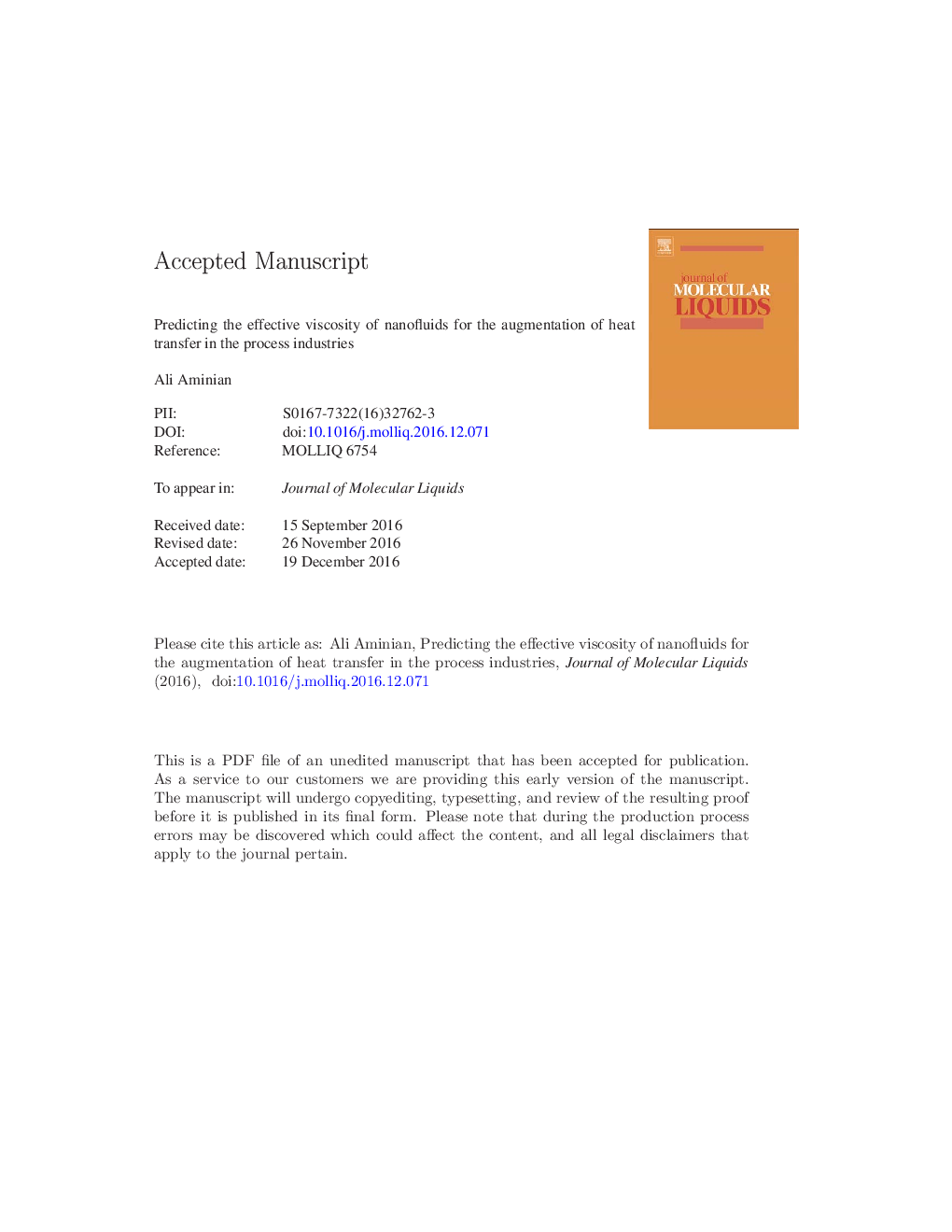| Article ID | Journal | Published Year | Pages | File Type |
|---|---|---|---|---|
| 5409153 | Journal of Molecular Liquids | 2017 | 44 Pages |
Abstract
Effective viscosity is helpful for the thermal design tasks in process industries, especially those related to pumping devices. Therefore, rheological behavior of nanofluids is important from power consumption point of view. In this study, an artificial neural network (ANN) model is developed to predict the effective viscosity of nanofluids based on a high number of experimental data available in the literatures. The effects of temperature, nanoparticle volume fraction, and the size of nanoparticles on the dynamic viscosity of nanofluids determined over wide ranges of operating conditions. The results indicate that the presented model can accurately predict the dynamic viscosity of nanofluids compared to the most important models for the dynamic viscosity of nanofluids. Eight different types of nanofluids, namely, Al2O3-water, CuO-water, TiO2-water, SiC-water, MWCNT-water, Fe3O4-water, Ni-water, and Ag-water are used to evaluate the accuracy of the proposed ANN model. The predicted effective dynamic viscosities of the nanofluids are in excellent agreement with experimental data with the AAD of 6.66% and R2-value of 0.9842.
Related Topics
Physical Sciences and Engineering
Chemistry
Physical and Theoretical Chemistry
Authors
Ali Aminian,
